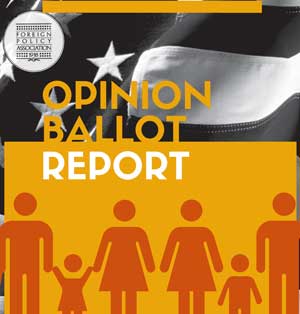Sectarianism in the Middle East
Great Decisions 2015 | Topic 3

How does sectarianism fit into a larger narrative of the Middle East? How have governments manipulated sectarian differences? And finally, what is the U.S. doing about it?
Many of the current conflicts in the Middle East have been attributed to sectarianism, a politicization of ethnic and religious identity. From the crisis in Iraq and Syria to the tension between Iran and Saudi Arabia, the struggle between Sunni and Shi‘i groups for dominance is tearing apart the region and shows no signs of abating. But for all the religious discourse permeating the conflict, much of its roots are political, not religious. How does sectarianism fit into a larger narrative of the Middle East? How have governments manipulated sectarian differences? And finally, what is the U.S. doing about it?
Latest News
Blogs
- The Implications of the Houthi Coup d’état in Yemen
- Saudi Arabia and Iran’s Backyard Politics
- Past, Present, Future: Gulf Women in the Economy
- Anti-Jihad as strategy?
- A Look at Canada’s War on the Islamic State
Related Organizations
Recommended Readings
-
The Sunni-Shia Divide
The Council on Foreign Relations' interactive guide to the Sunni-Shia divide explains the origins of the schism, the distinction between the two "branches" and how they're reflected in conflicts in the Middle East today.
-
The Islamic State (Video)
VICE News' documentary on ISIS provides substantial insider footage of the group in both Iraq and Syria, as well as a good summary of the group's activities and origins. The video is available online in full.
-
Sectarianism and Regional Conflict in the Middle East
This 2013 report from the Institute for the Study of War provides a good outline of the spreading sectarian conflict in the Middle East, particularly in Iraq and Syria.
-
USIP Series on Sectarianism
The United States Institute for Peace's series on sectarianism consists of five briefs on sectarianism in Syria, Iraq, the Gulf, Lebanon and the role of foreign states.
-
Sectarianism Afflicts the New Middle East
(Can be purchased online.) Daniel Byman, a professor at the School of Foreign Service at Georgetown University, looks at the origins of sectarian conflict and what the West can do to stymie its effects today.
-
Iraq: Politics, Governance, and Human Rights
This October 2014 report gives a solid overview of the interplay between the U.S.' invasion of (and eventual withdrawal from) Iraq and sectarian conflict within the country.
Great Decisions 2024 cover image.







